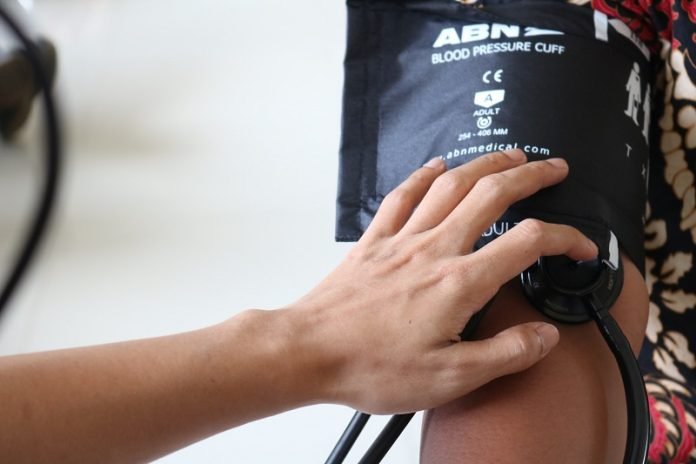
High blood pressure, or hypertension, affects many people in the United States, and it can be challenging to manage.
Even with the availability of high blood pressure medications and the benefits of regular exercise, many patients continue to struggle with persistent hypertension.
Persistent high blood pressure refers to when a patient’s blood pressure remains high despite receiving antihypertensive treatments.
In a study from the Yale School of Medicine, researchers sought to better understand the root causes of persistent hypertension.
The study analyzed patients at Yale New Haven Health System who had five or more consecutive elevated blood pressure measurements between January 1, 2013, and October 31, 2018.
The researchers found that many patients had persistent hypertension due to factors beyond treatment-resistant hypertension.
Treatment-resistant hypertension refers to cases where medication is less effective because of an underlying condition.
Persistent hypertension is a broader concept that can include patients with a lack of diagnosis, inadequate treatment, poor adherence to medication, missed appointments, and other barriers to healthcare.
To address the root causes of persistent hypertension, researchers are developing a new system called a “taxonomy.”
This system helps match patients with targeted interventions that address their specific barriers to hypertension control.
For example, some patients may benefit from having a social worker if they have financial issues with obtaining medications. Others may need more intensive antihypertensive treatment.
To automate this taxonomy, the researchers plan to use machine learning and natural language processing methods.
They design electronic health record-based clinical decision support tools that could connect patients to targeted, high-quality care at scale.
By automating this process, patients can receive targeted, personalized care that addresses their specific barriers to hypertension control.
The researchers hope to pilot this idea at Yale New Haven Health System in the future.
Their current focus is on improving hypertension control for 40,000 hospital employees and their dependents, a diverse population with different ages, sexes, and racial and ethnic backgrounds.
The researchers believe that this pipeline could be applied to other health systems and other chronic conditions, such as diabetes.
By targeting the root causes of persistent hypertension, this system has the potential to improve patient care.
This is true especially for those who have struggled to manage their high blood pressure for reasons beyond treatment-resistant high blood pressure.
Managing high blood pressure involves a combination of lifestyle changes and, in some cases, medication. Here are some steps that can help manage high blood pressure:
Maintain a healthy weight: Being overweight or obese can increase the risk of high blood pressure. Losing weight can help lower blood pressure.
Follow a healthy diet: Eating a diet rich in fruits, vegetables, whole grains, lean proteins, and low-fat dairy products can help lower blood pressure. Reducing the intake of sodium, processed foods, and sugary drinks is also important.
Exercise regularly: Regular physical activity, such as brisk walking, cycling, or swimming, can help lower blood pressure.
Limit alcohol intake: Drinking too much alcohol can raise blood pressure. Men should have no more than two drinks per day, and women should have no more than one drink per day.
Quit smoking: Smoking can increase blood pressure and damage blood vessels. Quitting smoking can help lower blood pressure.
Take medication: If lifestyle changes alone are not enough to manage high blood pressure, medication may be prescribed.
There are several types of medication that can help lower blood pressure, including diuretics, beta-blockers, ACE inhibitors, and calcium channel blockers.
It’s important to work with a healthcare provider to manage high blood pressure. They can help develop a plan that works for each individual’s needs and monitor blood pressure to ensure it stays within a healthy range.
If you care about blood pressure, please read studies that black licorice could cause dangerous high blood pressure, and Marijuana may strongly increase death risk in high blood pressure.
For more information about blood pressure, please see recent studies about how to treat slightly high blood pressure, and results showing this olive oil could reduce blood pressure in healthy people.
The study was conducted by Yuan Lu et al and published in Circulation: Cardiovascular Quality and Outcomes.
Copyright © 2023 Knowridge Science Report. All rights reserved.



